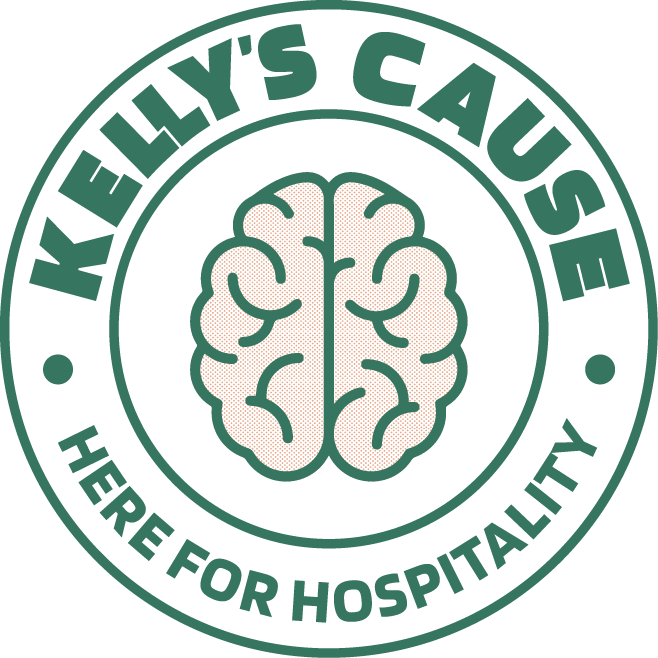Queers in Food & Beverage
To celebrate LGBTQIA+ History Month we caught up with founder of Butch Salads and Queers in Food & Beverage, Rachel Rumbol. Butch Salads is a queer run London catering company and Queers in Food & Beverage is a network and platform connecting LGBTQIA+ people who work in the Food & Beverage industry.
KC: Could you please give us a brief introduction to yourself and the work you do at Queers in Food & Beverage?
RR: My name is Rachel Rumbol. I identify as Queer and live in Peckham with my partner Lucy and cat Frank. I am a professional chef and co-own a catering company called Butch Salads.
I also run a network and platform called Queers in Food and Beverage which is all about elevating and celebrating the LGBT+ community working within the food and beverage industry.
KC: How important is celebrating LGBTQ+ History Month to you and why?
RR: LGBTQ+ history was never something that I was taught about in school or really anywhere else until I was about 19 and was lucky enough to have queer friends who were interested in such topics and in turn taught me so much as well as exposing me to places I could access such information, I used to spend hours in the BFI watching archive footage about LGBT Britain which just opened my eyes up to so much!
It's important that we have a month where we can learn more about our communities history and about those who came before us. I believe it's really important to take this month as an opportunity to pause and reflect on our communities rich and complex history. I am filled with gratitude to our queer ancestors who struggled and fought for their rights and in turn gave future generations the privileges they themselves were not afforded. These rights were not given freely by governments and those whose who made it their business to advocate for them did not do so without making significant personal sacrifices.
History never stands still and we as a community we need to carry on their work and advocate for those in our community who are not yet recognised and given equal rights here I am thinking of the trans community who face disproportionate and significant obstacles. Over recent years the rise in anti trans sentiment within our own community has been deeply harmful and really needs to be addressed.
KC: What do you see as the biggest barriers the LGBTQ+ community faces in the industry?
RR: When I started out as a chef I often felt unable to be open about my sexuality in male dominated kitchens. Being the only women I felt it was difficult enough and adding to that load didn’t feel like something I wanted to do. I think an out dated toxic macho kitchen culture is to blame for me feeling this way and I have spent the rest of my career avoiding it like the plague. Over the last few years things are shifting and we are as a industry realising for many reasons this culture does not serve us, but pockets of it are still rife and I really feel for those young LGBTQ+ people who think that this abusive and degrading culture is just part of being a chef, that’s what I thought and I was wrong. It doesn’t have to be like that there are plenty of restaurants and kitchens where this is not the way and you will be welcomed and respected.
Another barrier, and one of the reasons I started Queers in Food & Beverage, is that I feel that the LGBTQ+ communities contributions in this industry are often overlooked. This really frustrated me because I know there are so many hugely talented people within our industry who are part of the LGBTQ+ community. I believe we are underrepresented when you look in the mainstream media and this needs to change.
KC: How do you see the best way to navigate around these barriers?
RR: I would recommend to any young chef to do a little bit of research before taking on a job in a new place. Before you go maybe you can think of some questions to ask the head chef and other chefs that can give you an idea about the kitchen culture and attitudes. Try to remember that you do not have to stay in an environment where you are made to feel uncomfortable or unwelcome! And remember if it doesn’t work out there are a growing number of LGBTQ+ owned food business that would love to have you!
KC : What is next for Queers in Food & Beverage?
RR: This year I am looking forward to putting on some in person social and networking events. I am working on lots of new content that will continue to promote and celebrate the LGBTQ+ community within industry. I hope that the platform will grow and reach more people!
KC: What’s the best thing you have eaten this month and where can we get it?
RR: My sweet tooth is on the rampage at the moment and being able to order a Happy Ending’s ice cream sandwich to my door via Gorilla’s has really enriched my February. It was the Malty one obvs!
Here is a link to the BFI archive on LGBT history that you can now watch for free online
https://player.bfi.org.uk/free/collection/lgbt-britain
KC: Thank you for your time and incredible insight, we are honoured to celebrate you and the work you’re doing for the community and our industry.

